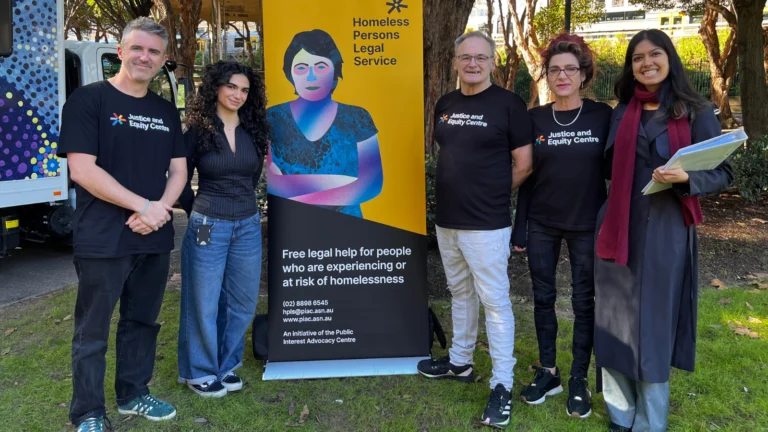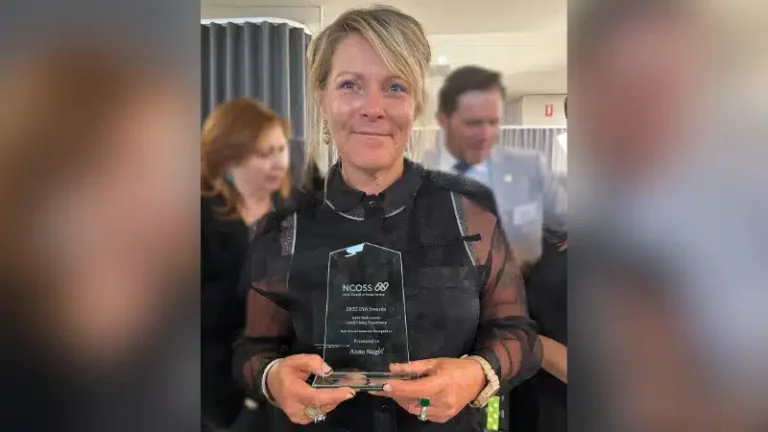Celebrating 30 years of PIAC
Edward Santow is PIAC’s chief executive officer.
Ed has overall responsibility for PIAC’s work, including defining and pursuing the organisation’s strategic vision and working with partner organisations. Ed has particular expertise in human rights, administrative and constitutional law, discrimination and anti-terrorism law.
Ed is a Senior Visiting Fellow at the University of New South Wales (UNSW), and serves on a number of boards and committees, including the National Pro Bono Resource Centre and the federal Government’s Information Advisory Committee. In 2009, Ed was presented with an Australian Leadership Award.
Ed was previously a Senior Lecturer at UNSW Law School and the Gilbert + Tobin Centre of Public Law. He has worked at the Australian Law Reform Commission, in a Sydney law firm and as associate to the Hon Justice Heydon AC of the High Court of Australia.
Much of Ed’s work as a lawyer and academic has been aimed at improving Australia’s human rights laws.
‘We are the last liberal democracy in the world that doesn’t have a comprehensive human rights statute,’ Ed told Fairfax Media in a 2012 interview, When duty calls.
‘PIAC has always stood for fairness and equality,’ Ed says.
‘PIAC was there for the early days of the Sex Discrimination Act, to protect equality of opportunity for women in the traditionally male-dominated steel industry.
‘The Australian Iron & Steel case was crucial, because PIAC showed the subtle (and not-so-subtle) ways in which women were discriminated against, resulting in female workers being dismissed at a
far higher rate following an economic downturn.
‘A particular focus of our discrimination work has been to protect the rights of people with disability. Fifteen years ago, Andy Durbach led PIAC in representing Scarlett Finney, a young girl with spina bifida who was told she couldn’t go to the Hills Grammar School.
‘I remember Scarlett well – a striking, articulate little girl and an exceptional advocate for why this treatment was hurtful and unfair.
‘We’ve represented a number of clients who have sought equal access to public transport – most recently, we represented Greg Killeen to make wheelchair-accessible taxis genuinely wheelchair accessible.
‘And just this month, Graeme Innes won his case, showing that Sydney’s commuter trains must make audible ‘next stop’ announcements – something that is crucial for people who are blind or vision impaired.
‘While litigation is an important tool for PIAC, so too is working cooperatively with the community, legal and commercial sectors, as well as government itself.
‘The best example of this collaboration is the Homeless Persons’ Legal Service. The service brings together 350 lawyers from the major law firms and Legal Aid who all give their time for free to provide legal help to people who are homeless.
‘In the past decade, we’ve helped about 7000 homeless people – where appropriate, diverting people with mental illness and addiction away from prison; and sorting out the kind of legal problems that can trap people in a cycle of poverty.
‘As we look ahead at our next 30 years, we’re acutely aware that much remains to be done to promote social justice for disadvantaged people. I know that PIAC can achieve amazing things in promoting social justice. We can’t do it alone; but we can do it with your help.’

